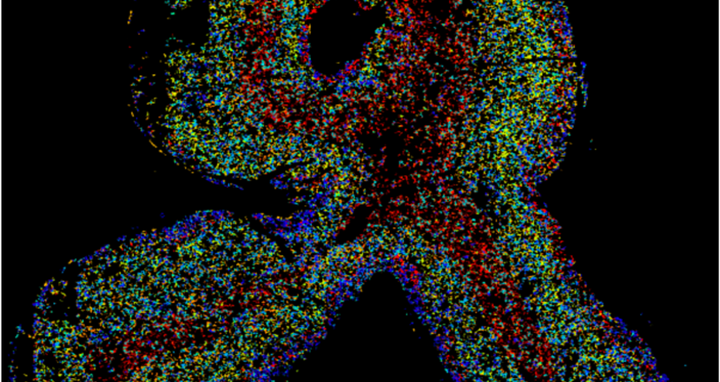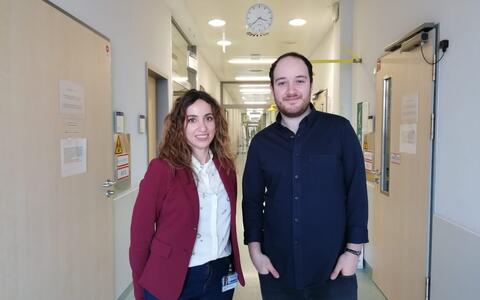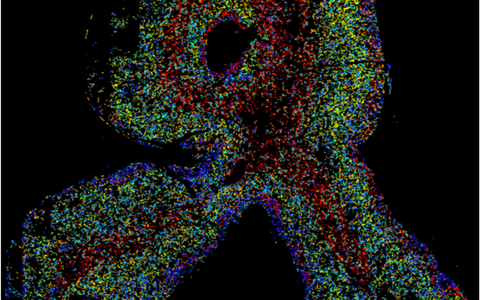Prize for Cell Atlas of the Adrenal Gland
When someone panics in closed and confined spaces and yet takes the U6 train through Berlin-Mitte at 8:00 am is probably stressed there: The adrenal gland triggers the infamous "fight-or-flight" response, whereupon the heart beats faster, blood pressure rises and muscles tense up.
Ali Kerim Secener takes the U6 subway to the Berlin Institute for Medical Systems Biology (BIMSB) of the Max Delbrück Center for Molecular Medicine in the Helmholtz Association (MDC) every day to investigate the human adrenal gland using single-cell technologies. In the "Genomics" technology platform from MDC and the Berlin Institute of Health (BIH), he is working on a cell atlas of this endocrine gland, for which he has now been awarded the 55th Schoeller-Junkmann-Prize together with his collaboration partner Dr. Barbara Altieri from the University Hospital Würzburg. The two researchers accepted the award at an online event. At its annual meeting, the German Society for Endocrinology awards the prize, which is endowed with 12,000 euros, for outstanding research work in the field of endocrinology.
Congratulations to Ali Kerim Secener from the MDC and to Barbara Altieri from the University Hospital of Würzburg, who received the 55th Schoeller-Junkmann Prize 2022.
Single cell biology of the adrenal gland
The adrenal glands are hormone secreting organs located above the two kidneys. In order to produce steroid hormones, the organ must constantly renew itself. However, researchers know little about its self-preservation and the underlying molecular mechanisms.
The three layers of a human adrenal cortex (blue, yellow, red).
Secener and Altieri were able to find out more about the complex process of self-preservation and regulation of the adrenal gland using single-cell technologies. Since 2019, the team has been working on a cell atlas of the organ. The researchers have now identified two previously unknown cell types: One is precursor cells that later transform into adrenaline-producing cells in the adrenal medulla, the cells that trigger the "fight-or-flight" mechanism in the body. The second previously unknown cell type is the progenitor of other hormone-producing cells in the adrenal cortex.
The cell atlas does not only provide insights into self-renewal of the adrenal gland. The team already uses it to characterize tumor cells that typically occur in the adrenal gland. Their findings are expected to appear in a peer-reviewed journal later this year.
About the Schoeller-Junkmann-Prize of the DGE
In memory of its two employees Walter Schoeller and Karl Junkmann, the company Schering AG endowed the "Schoeller-Junkmann Prize" of the German Society of Endocrinology from 1966 to 2009 for endocrinologists under 40 years of age working in Europe for outstanding research work in the field of endocrinology. After the merger of Schering with Bayer and the associated withdrawal of Schering, the DGE continues this traditional prize with the support of other sponsors (Pfizer Pharma GmbH).
Text: Christina Anders
Further Information
The Schoeller-Junkmann-Prize (in German only)







